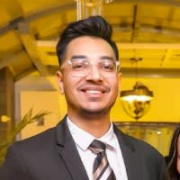

Redis and Faiss are competing in the area of data management and search solutions. Redis has the upper hand in support and broader functionality, while Faiss stands out with its specialized features.
Features: Redis is known for its speed, versatility, and robust data structures, making it adaptable for various use cases. Faiss specializes in complex data searches, offering advanced features like similarity search and vector quantization.
Ease of Deployment and Customer Service: Redis provides straightforward deployment with extensive documentation and broad platform support, making it user-friendly. It also leads in customer service due to its established systems. Faiss focuses on a developer-friendly approach with comprehensive guidance that supports machine learning frameworks, providing targeted technical support.
Pricing and ROI: Redis has a moderate setup cost, which translates into high ROI through scalable and performance-driven applications. While Faiss requires a higher initial investment, it justifies this with its advanced features, delivering significant returns for data-intensive operations. Redis offers cost-effective options, whereas Faiss emphasizes premium functionalities.


Faiss is a powerful library for efficient similarity search and nearest neighbor retrieval in large-scale datasets. It is widely used in image and text processing, recommendation systems, and natural language processing.
Users appreciate its speed, scalability, and ability to handle high-dimensional data effectively. Faiss also offers easy integration and extensive support for different programming languages.
Its valuable features include efficient search capabilities, support for large-scale datasets, various similarity measures, easy integration, and comprehensive documentation and community support.
Redis is a high-performance, scalable, and easy-to-use caching solution that improves application performance. It is also used for session management, real-time analytics, and as a message broker.
Redis's valuable features include its ability to handle large amounts of data quickly, its simplicity and straightforward setup process, and its support for various data structures, providing flexibility for different use cases.
We monitor all Vector Databases reviews to prevent fraudulent reviews and keep review quality high. We do not post reviews by company employees or direct competitors. We validate each review for authenticity via cross-reference with LinkedIn, and personal follow-up with the reviewer when necessary.